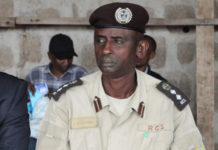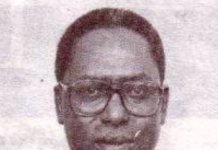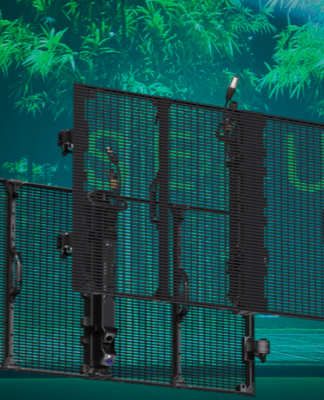The Rome Statute which created the International Criminal Court entered into force on 1 July 2002 after ratification by 60 countries. The Court was established to help end impunity for the perpetrators of the most serious crimes of concern to the international community.
Many governments, including US and Rwanda, considering the unlawfulness of some of their foreign policies, have however opted out from the Statute, fearing that their citizens [soldiers and other professionals] while on official missions could fall under the jurisdiction of the Court.
Since its inception, ICC has mainly focused its work on African warlords and dictators. But surprisingly, its selective justice has targeted so far only alleged criminal leaders who don’t serve Western interests on the continent.
This attitude has made many African leaders and analysts see in ICC an international judicial instrument aimed at protecting only capitalist interests, as do other similar institutions such as ICTR, WB, IMF, WTO, and many others.
Friday 17th August
In May 2012, in The Hague, ICC condemned former Liberian president Charles Taylor to 50 years of imprisonment for his role in the Sierra Leonean war and plundering of mineral resources.
On Friday 17th August, almost for similar crimes, but with acute atrocities

committed at unprecedented scale on the African continent, the case of the Rwandan president Paul Kagame is to be presented to ICC by representatives of Congolese and Rwandan opposition political parties and organisations of civil society. The group of representatives explains that, “Among the allegations against Kagame, there are all crimes committed between 1993 and 2003, his wars of expansion aimed at making Kivu province of Eastern Congo part of Rwanda, looting different minerals in the DRC as well as various violations of human rights that the Rwandan president and his affiliates are responsible of.” [Translation]
International criminal lawyer Christopher Black who will be advising the group legally explained to Ann Garrison the meaning of their action.“…they’ve taken that action because it gives the ICC temporal and territorial jurisdiction over Kagame and his forces. The prosecutor so far has only charged Congolese who seemed to stand in the way of Western interests in the Congo, and the FDU and the others are fed up with that, like everybody else is, and want the ICC to stop their policy of selective prosecution and charge people equally. So, since Museveni and Kagame have been the ones who’ve instigated all these wars and so-called rebellions in the eastern Congo, they should be charged. And that’s the object of the exercise.”
The Guardian on its part reveals that, “The demand to bring charges against Kagame has support among Congolese as well as opposition Rwandan politicians. “The politicians in Kinshasa are aware of these charges and they support them, although there have been no official statements as yet,” said Nzangi Butondo, a Congolese MP representing Goma. “We think now is the right time to [go to The Hague]. It is certainly something to raise publicity, but there is also the hope that the ICC will, as a result, at least launch an investigation into this affair.”
What has changed?
The Rwandan government has far too long built its internal and foreign policies on lies, so much so that even when they may be displaying some truth, it may fall in the overall picture of their usual lies.
Somewhere and somehow, among Kagame’s many Western backers, there are officials who consider him having caused too much suffering to the Great Lakes region populations.
Kagame’s RPF invaded Rwanda on October 1st 1990 claiming to bring democracy and development in that country.
Today Rwanda has more political prisoners, exiled journalists, or overall abused human rights than at any time of its recent history.
The majority of Rwandans have been dispossessed and are starving because they are not allowed to plant their usual food of subsistence.
Kagame forces with affiliated armies of Uganda and Burundi invaded DRC twice [1996 and 1998] under the pretext of protecting Rwandan frontiers.
Instead, the Rwandan president and Yoweri Museveni, president of Uganda, exploited and stole DRC mineral resources worth millions of $ and continue until today.
Let’s not forget that these minerals end up in all today electronic devices [computers, mobiles, etc] that the world is so fond in its insatiable search for comfort.
Millions of Congolese and Rwandan refugees have died as a consequence.
The case which triggered an official demand for the mentioned group for Paul Kagame’s indictment is strong enough to get him effectively investigated.
It is supported by solid evidence. He has been massively supplying recruits and arms to M23, Congolese rebel movement which is active in North Kivu province since April 2012, fighting against DRC governmental forces.
Can this time humanity prevail against greed? The outcome of the complaint that these Congolese and Rwandan organisations present to ICC this Friday 17th August will answer that question.
The request for Kagame’s indictment seems to be a test for ICC’s credibility in the eyes of the majority of Africans. It will confirm for them if that institution has not been another tool of imperialism against African interests.
































































Leave our president alone!!!!!!!!!!!!!!!!!